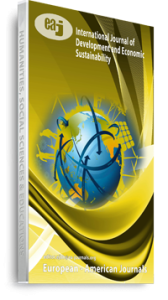This study empirically examines the long-run and short-run relationship between government expenditure and Economic growth in Tanzania over the period of 1996-2014 making the use of annual secondary time series data. The Error Correcting Model (ECM) is employed to examine the long-run and short-run estimates of parameters. In addition to that the granger causality test is employed to determine whether government expenditures granger causes economic growth. In the long-run government expenditure is found to be statistically significant and has positive relationship with economic growth. The short -run estimates show there is no significant relationship between government expenditures and economic growth. The results of granger causality test show uni-directional causality running from economic growth to government expenditures. The government of Tanzania should improve in the allocation of resources in its development expenditure and social services expenditure and channel such expenditure to allow for private sector participation and infrastructure development in order to accelerate economic growth.
Keywords: Government Expenditure, Tanzania, Time Series Analysis, economic growth

